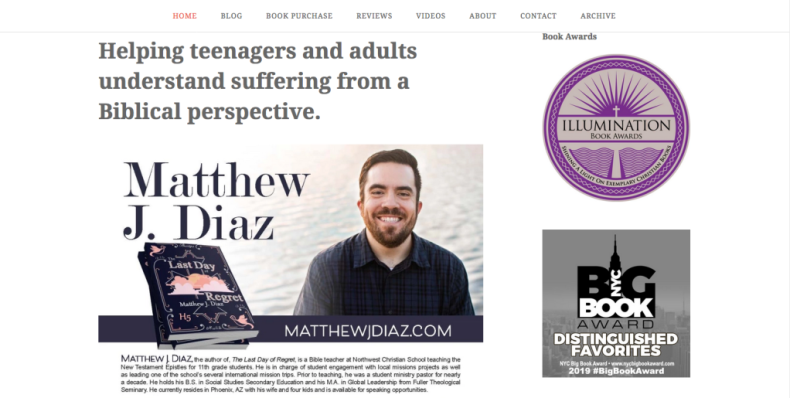
“My flesh and my heart may fail, but God is the strength of my heart and my portion forever” (ESV).
Psalm 73:26
“Lord, you alone are my portion and my cup; you make my lot secure.”
Psalm 16:5
Manna from Heaven:
God said to Moses in Exodus 16:4-5 “The people are to go out each day and gather enough for that day.” They were also commanded on the 6th day to collect enough for two days so that they did not work on the sabbath. The Israelites broke both those commands and Moses had to rebuke them.
The ones that hoarded manna found it rotten and filled with maggots the next day. The ones that did not collect for two days went to look for some and did not find manna from heaven on the 7th day.
Do you trust God and by that do you obey Him when he tells you he will provide for you? You can imagine that after seeing the rotten manna they overreacted and said, “Well we can’t trust God on the Sabbath that our food won’t rot so we need to wait.”
However the problem is still a lack of faith that if they collected food for the Sabbath God would sustain what they collected and prevent it from rotting. In both situations, many Israelite’s failed to trust God when they first started eating God’s provisions. They would adjust and learn to trust God because they did this for forty years.
My Portion and Cup:
When I hear portion and cup I think my portion of food and cup to quench my thirst. The metaphor is clear when the Psalmist says, “You prepare a table before me in the presence of my enemies. You anoint my head with oil; my cup overflows” (Psalm 23:5, NIV).
Indeed, a cup is being filled with probably the finest of wines and even more so, it is overflowing. It is in abundance, it is more than enough to fill me. Preparing a table of food, meaning my enemies will see how my God provides for me because my trust is in Him.
These terms portion and cup reference an inheritance from God. For the Israelite’s, the land of Canon was promised to them. Once they settled in the land God had set aside for them, maintaining it was their hope.
The Lord’s Prayer:
Jesus expresses this same trust when he teaches on how to pray. Matthew 6:11 says, “Give us today our daily bread.” This is a direct reference to the time the Israelite collected Manna daily in the desert. Do you trust God to provide for you today?
It isn’t weekly bread, or forever bread it is daily bread. We don’t need to ask for any more or any less of God. Today’s provisions is enough.
The Lord Provides:
One of the names for God in Hebrew is JEHOVAH-JIREH, the Lord will provide. This first appears in Genesis 22, when Abraham is instructed to offer up his son Issac as a sacrifice. An angel of the Lord called to him and told him to stop because Abraham’s faith was being tested. A lot of time and mistakes had been made to bring Isaac into the world whom Abraham’s descendants where promised to come from.
We find in Hebrews 11 that a Jewish interpretation of Abraham’s belief was that God would raise his son Isaac from the dead to fulfill his promise to Abraham to have descendants as numerous as the starts.
Abraham named the place “The Lord will provide.” This is where the temple was built and on this same mountain, just outside the city walls is where Christ was crucified. It is believed that Jesus could see the temple, and therefore see the place where Abraham offered up his only son Isaac. Isaac was a prototype of Jesus who was to come. The story of Abraham is clear, a Father willing to give up his only son, and the willingness of Isaac to trust his father Abraham.

Jesus Our Portion:
In the same fashion, Jesus actually was sacrificed, placing his complete trust in the Father to bring his physical body back to life. That is why we believe that a physical resurrection is essential to our belief because God not only provided a sacrifice for all of us, but provided new life by Christ’s resurrection. We read in Romans 8 that it was the power of the Holy Spirit that brought Jesus’ body back to life and that same spirit lives in us and so we know we will be resurrected on the Day of Jesus’ glorious appearing.
Jesus therefore is our portion, our cup, our stronghold, our provider and all the names of God we find in the Old Testament. Jesus mirrors the father, if you see Jesus, or in our case learn of and believe in Jesus, we have seen the Father (John 14:9).
Is that enough for you? Most believers would say, “Yes of course.” Jesus has provided salvation and I believe that. However, do you trust that God’s physical provisions for you are enough for today?
Paul and Suffering:
When Jesus ascended into Heaven the Holy Spirit came down to the disciples at Pentecost. From there the early church exploded exponentially. When Saul was converted on the road to Damascus, he was blinded and then healed after three days. When he began to preach in the Synagogues he was often beaten and thrown out.
After decades of preaching he found himself awaiting trial before Caesar in Rome based on the charges of ensuing a riot in Jerusalem. He had previously purchased his Roman citizenship, probably for this eventuality, to buy himself more time to preach the gospel and praise God he did. While under house arrest, he wrote several letters, one of them being Philippians.
One verse that stands out to people the most is Philippians 4:13, “I can do all things through him who gives me strength” (NIV). This has become the athletic mantra for the past several decades but never placed in the right context.
In this Covid-19 pandemic, understanding what Paul meant and his circumstances makes all the difference. Just before sending this letter, we get the impression that Paul was in need of provisions, food, money, and/or clothes. The Philippians had heard of his need while stuck in Rome and sent him gifts of all his needs. He writes this letter to thank them for this gift. They were being Christ to Paul, providing for Paul in a time of economic need.
Contentment:
Here is the beginning of the context.
“I rejoiced greatly in the Lord that at last you renewed your concern for me. Indeed, you were concerned, but you had no opportunity to show it. 11 I am not saying this because I am in need, for I have learned to be content whatever the circumstances. 12 I know what it is to be in need, and I know what it is to have plenty. I have learned the secret of being content in any and every situation, whether well fed or hungry, whether living in plenty or in want.”
Philippians 4:10-12, NIV
What Philippians 4:13 really means is that I can live under any economic circumstance by being content with what God has given me. Paul has accepted that God truly is his JEHOVAH-JIREH. God will provide for him and He did this through the Philippians at that time in Paul’s life.
Can you be content with God’s daily provisions for your life, for your family and for your future? Whether you are in abundance or laid low, do you trust God? In these uncertain times, you must have faith in God and be responsible with what he has entrusted to you to the best of your ability.
When you are out shopping, can you have the mind set that you need to only take what is enough for you and not take away from others. Part of our shortage of supplies is because people have taken more than necessary. People are acting out of fear.
I may not get the ground beef I want to make a meal this week. It really is okay. Can we live off of Mac and Cheese for a period of time? Yes, that is my family’s manna. Will God provide for my family today? Yes.
The test is with my tithe’s and offerings. Can I still give to the church and help those in need when I am uncertain of the future? That is the test of the church body right now. Who can trust God enough to give, showing with their actions that whatever we have has always been God’s?
Is God enough for you? What does it look like to be content today? If you have plenty, praise God, if you are in need, praise God all the same. Seek him, pray to him, place all of your faith in the God who gave everything to us by his son Jesus Christ.
Come Lord Jesus, Come!
In Truth & Love,
Matthew J. Diaz
Author Bio here
Home page here
thumbnail image: Shutterstock/Kevin McGovern

